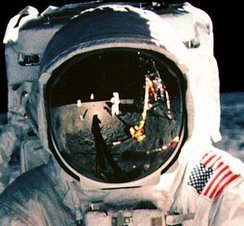What makes the ICRC exempt from suspicion?
Sorry if this sounds all crazy paranoid (what the the heck, can't let the moonbats have all the fun) but I was reading an article about the photo's of Saddam Hussein that have recently surfaced in "The Sun" and "The New York Post" and was struck by this line:
Why are U.S. soldiers or personnel the immediate suspects in this case? With what the ICRC has been revealing lately about their supposedly "confidential" reports that they made to the U.S. government, it seems to me that the ICRC is trying to embarass the U.S.
From an article on the ICRC website about ICRC "neutrality" titled "Recognition of the ICRC's long-standing rule of confidentiality - An important decision by the International Criminal Tribunal for the former Yugoslavia"
[emphasis added]
Interesting. How does that conflict with Simon Schorno of the ICRC making statements such as: [from a Reuters report]
Me thinks something is rotten in Geneva.
Personally in regards to the whole brouhaha about Saddam in his tighty whities I agree with Hawre Saliee also quoted in the original MSNBC article:
"Aside from U.S. soldiers, the only others with access to Saddam are his legal
team, prosecuting judge Raed Johyee and the International Committee for the Red
Cross, which monitors his treatment for compliance with the Geneva Conventions"
Why are U.S. soldiers or personnel the immediate suspects in this case? With what the ICRC has been revealing lately about their supposedly "confidential" reports that they made to the U.S. government, it seems to me that the ICRC is trying to embarass the U.S.
From an article on the ICRC website about ICRC "neutrality" titled "Recognition of the ICRC's long-standing rule of confidentiality - An important decision by the International Criminal Tribunal for the former Yugoslavia"
"The ICRC makes public statements about violations of international humanitarian law only when it is confident that to do so will not prejudice its ability to discharge its mandate. Such statements are of a very general character, avoiding any allegations against named individuals. The violations must be major and repeated and must have been directly witnessed. Even then, public statements are made only if steps taken confidentially have not succeeded in putting an end to the violations, and such publicity is in the interests of those affected or threatened. The ICRC uses public statements, therefore, as a means to put a stop to an ongoing violation of humanitarian law, not in connection with the punishment of violations."
[emphasis added]
Interesting. How does that conflict with Simon Schorno of the ICRC making statements such as: [from a Reuters report]
The International Committee of the Red Cross told the Pentagon "multiple" times in 2002 and early 2003 prisoners at the base in Cuba alleged U.S. officials showed "disrespect" for the Muslim holy book, said Simon Schorno, an ICRC spokesman. "The U.S. government took corrective measures and those allegations have not resurfaced," Schorno said.[emphasis added]
The ICRC spokesman declined to specify if the complaints included the flushing of the Koran down the toilet or if U.S. officials used the disrespect as part of interrogations. Members of the humanitarian organization, which is given access to the prison, did not witness any mishandling of the Koran.
Me thinks something is rotten in Geneva.
Personally in regards to the whole brouhaha about Saddam in his tighty whities I agree with Hawre Saliee also quoted in the original MSNBC article:
“Saddam Hussein and his regime were bloody and practiced mass killing against the people, therefore, whatever happens to Saddam, whether he is photographed naked or washing his clothes, it means nothing to me. That’s the least he deserves,”

